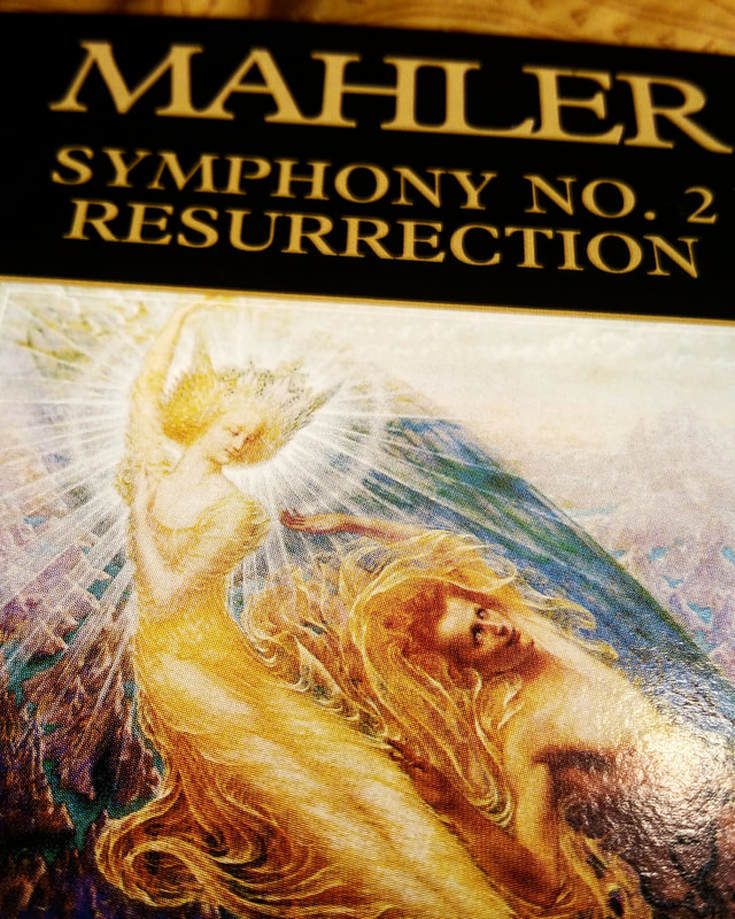|
There is an undeniable absence of common sense when one searches among recordings of a favorite piece of music with the assumption that there exists one version that can stand alone in saying all there is to say about such a piece. The idea that there is a performance of a piece of music, with all the information it contains, that makes all others superfluous is not only unlikely but also undesirable. It suggests that a composition is a puzzle that, as if it were exact science, knows only a single, fixed answer. As something that can be left alone after it is solved. Being in constant combat with the space on your CD-shelves - after purchasing another version of Tannhäuser or a Beethoven symphony - is not an end in itself, but it is a willing effort whose rewards (complementary or changing insight and arousing curiosity for a next rendition) are almost impossible to resist. A man needs, after all, a̶n̶ ̶a̶d̶d̶i̶c̶t̶i̶o̶n̶ a hobby. (Wagner is to blame here, he turned me into a collector by surprising me how different the performances of his operas can sound, he made me hungry for different versions, hence the many Ring-cycles that inhabit my m̶é̶d̶i̶a̶t̶h̶è̶q̶u̶e̶ living room now.) To restrict oneself to one version per composition. I manage with Vivaldi's Four Seasons but not with Wagner, as mentioned, and not with Mahler (and not with many others, the list of composers is, in fact, growing). In my aural travels through Mahler's second symphony, the quest for resurrection, I found myself, perhaps suprisingly, attached to Hans Vonk's rendition with the Residentie Orchestra The Hague from 1986. Surprisingly because its sonics are a bit muffled and its reading is somewhat restrained. This is Mahler played like he is Beethoven. More than relying on Romantic gestures this is a Mahler who prefers a more "classical" approach. Like Mahler doesn't dare to follow his own Romantic footsteps. Like he is afraid of the implications of his own musical intentions and innovations. This is a reading of Mahler, relaxed yet swift (the whole symphony fits on one CD), that displays everything in a natural, organic way and doesn't care (too much) about making a sonic impression. Here Mahler seems to understand that true heaviness is the result of the cumulation of all ideas, and not of the emphasizing of just a few. Pretty much he lets the music take care of itself and by doing so he seems almost shy in comparison to some of the big names in the catalogue (I think of Bernstein whose readings of Mahler's Second - both his first and second offering in his two Mahler cycles - are terribly overblown). It's, for all its imperfections, the instrumental execution is far from razor-sharp, a performance that's lyrical, remarkable capable of putting the extremes in Mahler's score in the right perspective (its "Urlicht" by Mahler-champion Jard van Nes comes out most seductive and the climax at the end sounds as the natural consequence of everything that preceeds it). Seemlingly effortless in achieving its musical aims, and, perhaps of its relatively restrained approach that invites more than it imposes, this performance never fails to move me and is, like a resurrection that lives up to its name, something that keeps coming back to me. Like a deep-rooted wish to defeat the temporality of life. A wish that, despite or thanks to the knowledge that one is immortal for only a limited time, seems persistent. Mahler, Hans Vonk, Residentie Orchestra The Hague, Maria Orán (soprano), Jard Van Nes (mezzo soprano), The Dutch Theater Choir – Symphony no 2 in C flat "Resurrection"
0 Comments
|
Archives
September 2023
Name/dropping
All
|


 RSS Feed
RSS Feed